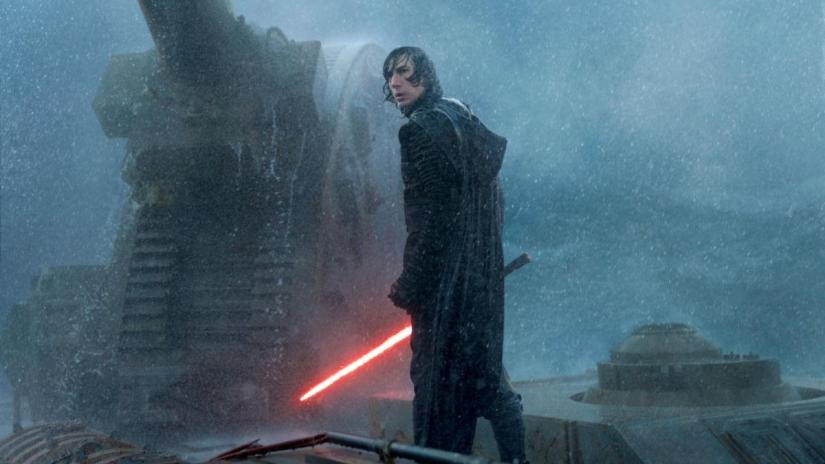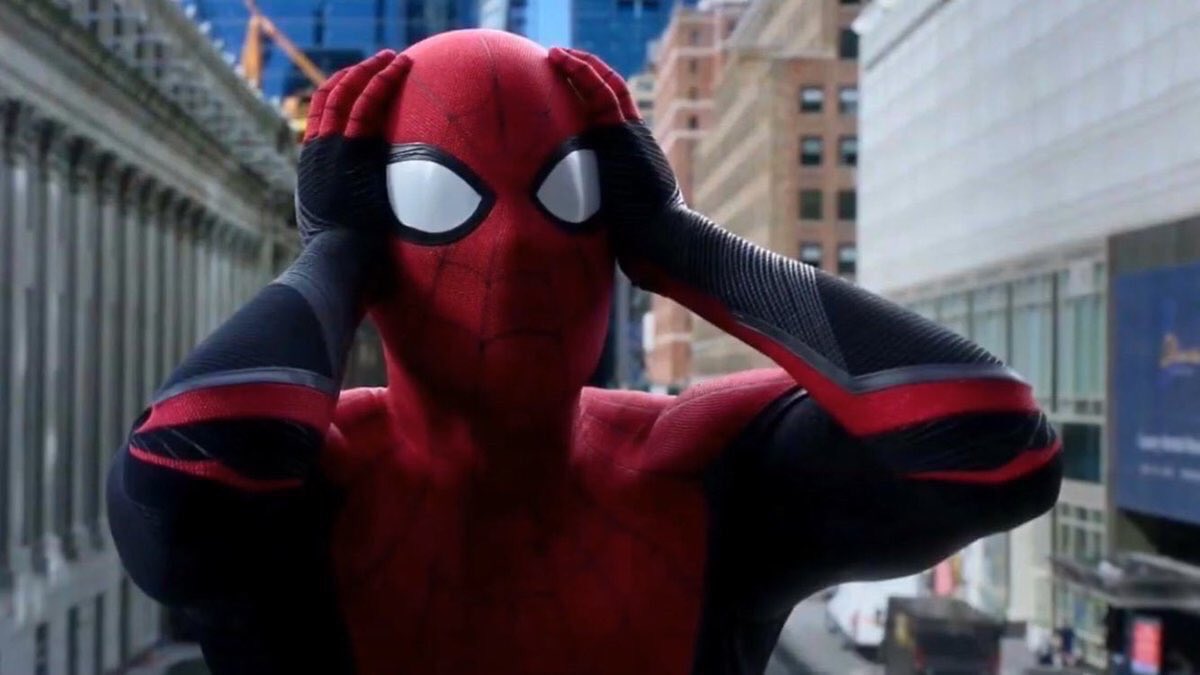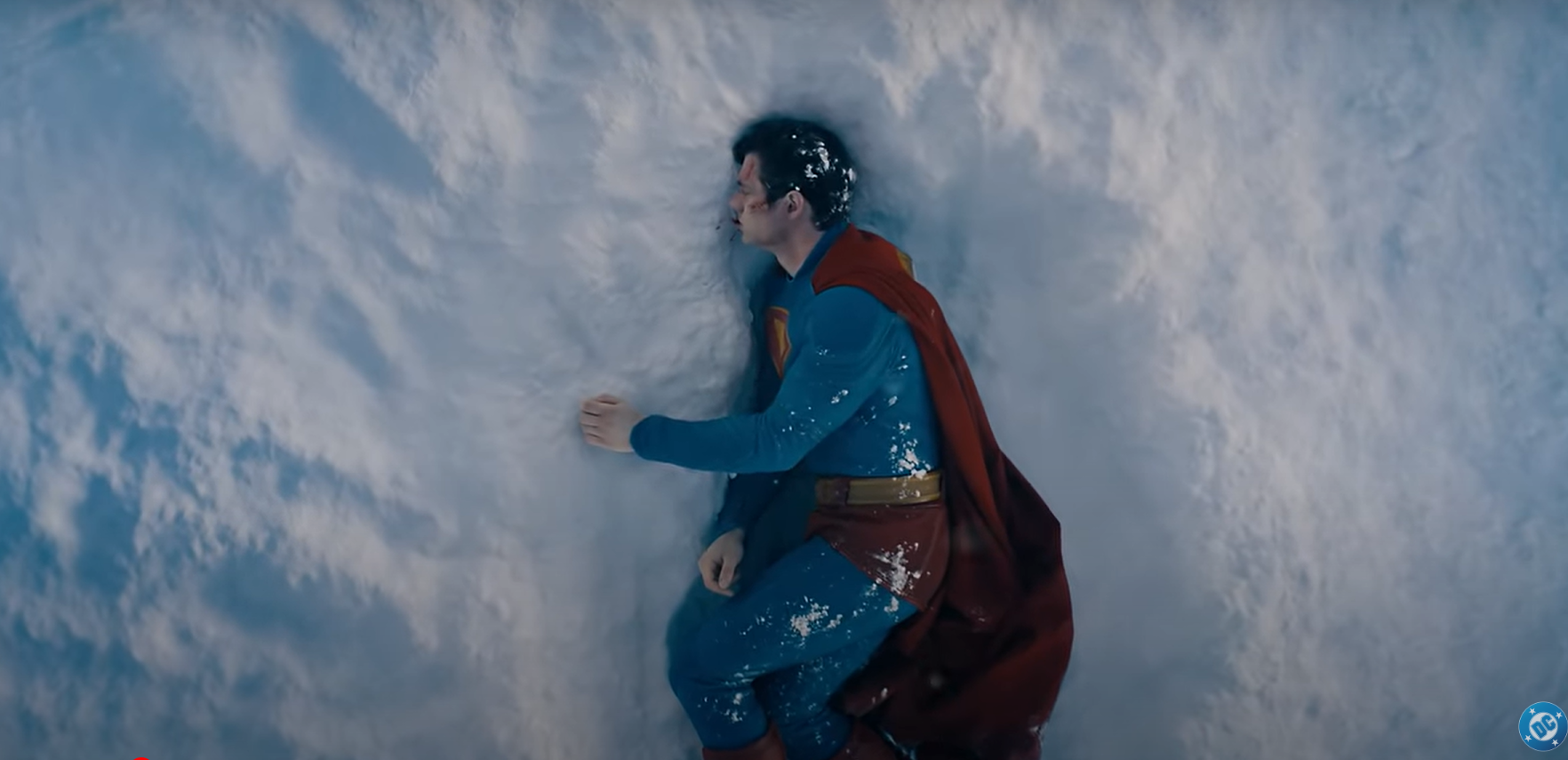![]()
Producer David Heyman may be competing with a couple others like Spielberg, Lucas and the Broccolis to be considered the most successful movie producer ever, but he’s somehow found that success from his cozy home in England without having too much interference from Hollywood.
Of course, it helps when you’re the producer behind the hugely successful Harry Potter movies that have grossed over $7 billion worldwide, but Heyman had similar success bringing the children’s character Paddington to the screen, as well as shepherding Alfonso Cuaron’s sci-fi epic Gravity to its $723 million global box office and seven Oscars.
So let’s just say that when Harry Potter author JK Rowling decides that she’s going to write a screenplay based on her character Newt Scamander and his book Fantastic Beasts and Where to Find Them, it takes a producer like Heyman to make that movie happen… and to help Rowling fulfill her vision for four more movies!
Scamander in this case is played by Eddie Redmayne, the Oscar-winning actor who played Stephen Hawking in The Theory of Everything, and it follows his journey to New York in 1926 to help defeat an evil wizard and a creature that’s run amok that he hopes to save from obliteration. He’s joined on his quest to find and subdue wayward magical creatures by Dan Fogler’s “No-Maj†Jacob, and two wizarding sisters, Tina and Queenie, played by Katherine Waterston and Alison Sobel.
LRM sat down with Heyman later in the day at the film’s New York junket for the following interview:
LRM: When I spoke to David Yates, he mentioned his first “in” to this movie was you sending him the finished script. Did JK Rowling decide to write this on her own or was this something that came up during a conversation with you or Warner Bros?
David Heyman: No, what happened was that “Potter” finished and it was mixed feelings. There was sadness because it was like family going their separate ways. We’re leaving it on a high, which is great, but at the same time, it was such a brilliant world to be a part of and we’re all going our separate directions; and when that last day of filming and then when we looked at the premiere, the last premiere in London at Trafalgar Square, it was so moving. The passion of the fans. At the same time, it’s quite exciting to move on and make other films and tell other stories.
Hooking on to Gravity and Paddington was exciting, but at the same time, “Potter” always loomed large. Lionel and I got together – Lionel Wigram, who is the executive who had sent the first book back in 1997. We were sitting and talking about what we could do. Lionel had the idea of doing a faux documentary–Newt Scamander traveling around finding his beasts. That idea was pitched to Jo who said, “Huh, that’s so funny. I’ve been thinking about Newt Scamander, and I’ve actually got a completely different story.” When we heard it, it was so much better than the faux documentary, as Lionel will be the first to admit. She told Warner’s, they loved it, and she went off and wrote.
Then I received the script first, and it was mixed feelings, because there was some trepidation because she’s a novelist–she’d never written a screenplay. I was a little bit nervous about, is it going to be good? Because there’s a big difference between being a novelist and being a screenwriter; but as soon as I opened it and read the first paragraph, it was fantastic. That being said, it wasn’t perfect. It needed work. It’s a first draft done in isolation alone, a first script — she’ll be the first to admit–she had to learn, certainly. We brought on David Yates, and he and Steve worked together to discuss it with her, and she then went in a different direction, and she made it really dark – which was great! – but it was really dark. In a way, the big thing that she discovered was tone. Once she found her tone, some of that whimsy that was in the first script remained. Some of the darkness that was in the second draft remained. Once she found her footing, we were off to the races. She’s a voracious writer. She cannot stop writing. Then we were working on the new script for the new film. She’d done a draft, and David asked her for a 12-page outline; the structure, the plot. Then two days later, a 102 page half-draft, half-treatment shows up. She is phenomenal. This is just pouring out of her.
![]()
LRM: What about casting Eddie Redmayne as Newt? Was Jo involved in that aspect of the casting as a producer?
Heyman: She leaves us to do the casting, but we run the major parts by her. So Newt and Queenie and Tina and Jacob, we show them. We go through the auditioning process and then we’ll show her our final choice. David’s final choice. She’s never said “no.â€
LRM: Is she generally familiar with the actors like I assume she must be familiar with Eddie?
Heyman: Yeah, she knew Eddie, but she’d never heard of Dan or Alison or even Katherine. Eddie was our first and only choice. He’s quintessentially British. He feels like he could live in any time; but 1926 he doesn’t feel out of place. He’s good at playing awkward characters who are slightly on the fringe, on the edge, who may not be obviously sympathetic, but he makes them warm. He makes them sympathetic. He has an intelligence about him, and David loved his silhouette. He imagined it in a sort of Buster Keaton, Chaplin feel he wanted. He could imagine Eddie fulfilling that. He has an intelligence about him, which I think is very important for Newt. He has great empathy. Eddie was a great person to have on the set, a bit like Dan (Radcliffe), actually. He was an enthusiast. He works harder than anybody on his art. He’s always positive. Hardest on himself. Determined to do great work, and doing everything he can to give the director what he needs. That ‘s with Dan, that’s with Eddie. They’re real leaders on set, and it’s great for all the cast – everyone – to see them and to work with them, because it cheers you up. You all follow–you all do it.
LRM: You’ve done a great job with Daniel Radcliffe—I mean, obviously his father had a part in that, too—but I’ve talked to him a few times over the years, and he’s really put his career in a good place where he’s doing really interesting movies, and he’s always great to interview. That’s not true with every actor either.
Heyman: No! He’s enthusiastic, and he’s hard-working, and Emma (Watson)–look what’s happened to her! I don’t know if you listened to her speech at the UN. I mean, staggering! The “He for She” speech. Amazing, the one that she gave and she’s doing great work, working with directors like Darren Aronofsky and now having just done Beauty and the Beast. Yeah, she’s amazing.
LRM: The movie is set in 1920s New York, but you ended up building a lot of that in the backlot at Leavesden Studios.
Heyman: We came here to scout. It turns out that 1926 New York doesn’t really exist. You’re going to see a little bit of it, and then it goes out, because New York was being built in 1926. It’s one of the reasons for setting it then. It was a time of great change. It was a time of great excess, great disparity between the haves and have-nots, just before the crash of ’29. Having finished World War II with the specter of fascism, looming large in the not-too-distant future. You know, I think there’s a reason to set it in 1926 New York. In terms of building it, if you were here filming, we’d deal with honking horns, we’d deal with filming limits and hours and all. When we’re doing it in London, at least in studios, we can shoot when we want.
LRM: That’s another big difference with “Fantastic Beasts,†taking the action out of England. With “Goblet of Fire” we saw a little of Bulgaria and France, so was taking the story out of England something very much on Jo’s mind over the years?
Heyman: One of the things I love about these stories is that they cross borders. Whether you are Japanese or English or American, French, South Korean, Indian… Potter resonates. I think this story, while it was set in England — the initial Scotland, the original one, original series – it fact, there was Durmstrang at about that time in Bulgaria and in France. It suggested this was a bigger world. Coming to America, there’s an American school, Ilvermorny. There’s a tradition of magic where you had the Salem witch trials which feeds so perfectly into her themes of people being stigmatized and given labels and judged. People who were different being damned because of it, or persecuted because of it – it resonates today. I think this is a global story. Its themes resonate physically and I think thematically it’s a global story because these issues, these themes, these ideas, are as relevant in New York in 1926 as they are in Russia in 2016 as they are in China in 1940s, ’50s, as they are in etc. etc.
LRM: We get to see how Americans deal with magic and creatures so differently from the British. I feel like the British have this whole legacy of King Arthur fighting dragons, where in America, that stuff never really happened, and it was left behind in Europe.
Heyman: No, but what you do have is you do have the Salem witch trials. You do have the mysticism of the American Indians. You have traditions of your own. Jo, for all the fantasy and all the magic and all the wonder that is in Potter and in Fantastic Beasts, what really is at the heart of it are characters. It’s characters who are outsiders, who are you and me. We all feel outsiders. We all feel alone. However in love we are, however close to our families we are, in love, how close our friendships are, there are times we feel alone or outside. I mean, Newt is us. Socially, he’s you and me, socially a bit uncomfortable.
LRM: I relate a little bit more to Jake, actually. I felt like Jake was me.
Heyman: Jake is all that sense of wondering come to this world.
LRM: I heard little rumblings from earlier interviews about Dumbledore being in the next movie, too.
Heyman: A little bit.
LRM: Do you have any idea what age we’re talking about being that it was 80 years before we meet him in the first Harry Potter movie?
Heyman: The thing about Dumbledore is he’s been around for a long, long time. Hundreds (of years)!
LRM: If you’re not using Michael Gambon, then I figure you must be going for someone younger, at least.
Heyman: It’s not going to be Mike. It’s not going to be Mike. We don’t know yet.
LRM: Because I have a really good idea. I think you should get Jared Harris, since his father was the original Dumbledore.
Heyman: You’re not the first person to say that. He’s a wonderful actor. Have you seen The Crown? He’s fantastic in The Crown.
![]()
At this point, we went off into a conversation about the Willy Wonka prequel Heyman is developing and the Paddington sequel, and then Heyman’s thoughts about Paddington brought us back to Fantastic Beasts…
Heyman: (Paddington) is about being an outsider. It’s about finding a home and–I think this is centra—it’s the idea of embracing people who are different, because they will enrich your life. In doing so, your life will be enriched. And that’s actually not dissimilar to Potter in the sense of tolerance and acceptance of difference, that don’t stigmatize people just because they’re not like you, out of fear. That fear is a destructive motivational – it’s just toxic. I think that’s true in “Fantastic Beasts,” you know? You look atthe fear of the magical world, or the fear of those people who aren’t like you. Look at the consequence of that. So, too, in “Paddington.” It’s actually – Paddington’s different. That’s okay.
LRM: The visual effects in that movie were amazing. I think that probably would have got nominated for an Oscar if they’d have pushed it.
Heyman: Well, the animation supervisor on that was Pablo Grillo, and Pablo’s one of the great animators, I think, working today.
LRM: Oh, that’s right. David Yates says he worked with him on the creatures in “Fantastic Beasts.â€
Heyman: I introduced him to David on this film, because it was great to have him in there, and the way the Niffler and the (beasts), just making them come to life, and giving them qualities that we can engage with and relate to.
LRM: Yeah, every kid’s going to want a Niffler. I hope you have the plush toy ready to go for the holidays.
Heyman: I know. Or a Pickett!
LRM: I want a Niffler.
Heyman: I want a Niffler.
LRM: I want it!
Heyman: (laughs) I’d like a Niffler, but I wouldn’t mind a Pickett.
Fantastic Beasts and Where to Find Them opens on Friday, November 18. Check out our interview with Dan Fogler below.

 FOR FANBOYS, BY FANBOYS
Have you checked out LRM Online’s official podcasts and videos on The Genreverse Podcast Network? Available on YouTube and all your favorite podcast apps, This multimedia empire includes The Daily CoG, Breaking Geek Radio: The Podcast, GeekScholars Movie News, Anime-Versal Review Podcast, and our Star Wars dedicated podcast The Cantina. Check it out by listening on all your favorite podcast apps, or watching on YouTube!
Subscribe on: Apple Podcasts | Spotify | SoundCloud | Stitcher | Google Play
FOR FANBOYS, BY FANBOYS
Have you checked out LRM Online’s official podcasts and videos on The Genreverse Podcast Network? Available on YouTube and all your favorite podcast apps, This multimedia empire includes The Daily CoG, Breaking Geek Radio: The Podcast, GeekScholars Movie News, Anime-Versal Review Podcast, and our Star Wars dedicated podcast The Cantina. Check it out by listening on all your favorite podcast apps, or watching on YouTube!
Subscribe on: Apple Podcasts | Spotify | SoundCloud | Stitcher | Google Play



